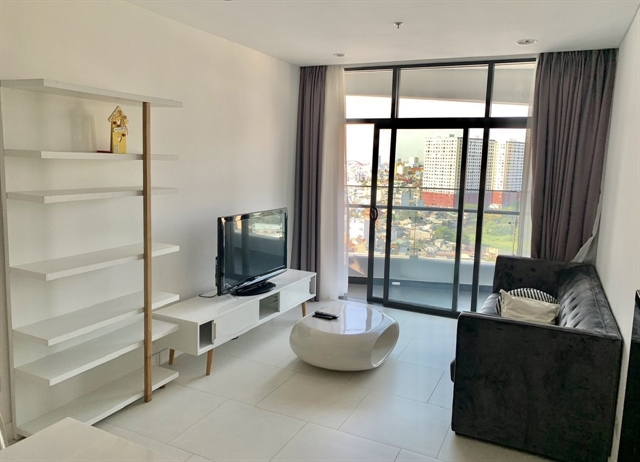Đỗ Văn Phú, 50, has built a successful business managing hundreds of apartments for rent across various districts in Việt Nam’s largest city.

HCM CITY — Đỗ Văn Phú, 50, has built a successful business managing hundreds of apartments for rent across various districts in Việt Nam’s largest city.
For nearly ten years, Phú has found success in the short-term rental market in HCM City, transforming regular apartments into desirable homes for customers, mostly travellers.
However, the recent citywide ban on short-term rentals has cast a shadow over his entrepreneurial dreams, replacing his optimism with worry.
“I expect to face losses in the hundreds of millions of đồng,” he told Việt Nam News.
His business model involved renting apartments from owners for prices ranging from VNĐ10-30 million (US$390-1,200) each month and then leasing them to short-term guests for up to VNĐ50 million.
This arrangement not only filled his pockets but also provided property owners with a reliable source of income.
Phú’s successful approach was built on a careful balance of supply and demand, as he turned ordinary living spaces into sought-after stays for both domestic and international travellers.
But with the new regulations in place, that balance has been thrown into disarray.
“We’ve already committed to deposits on many units, and now our expected monthly income is going to take a major hit because of this policy,” he said.
Phú’s situation is far from unique. Numerous investors heavily invested in Airbnb-style accommodations are now bracing for financial challenges.
The sudden change in regulations has left a community of entrepreneurs feeling uncertain about their futures.
“We’re all in the same boat,” Phú said, referring to his fellow investors who share his concerns.
The once-bustling short-term rental market has now become a source of anxiety, as property owners face the harsh reality of empty apartments and financial strain.
The Icon 56, The Tresor, and Millennium in District 4, for example, are just a few of the apartment complexes that have joined the ban, stopping homeowners from leasing their properties to short-term tenants.
Nguyễn Văn Vinh, who operates three Airbnb-like apartments in Bình Thạnh District, is similarly affected.
He invested billions of Vietnamese đồng, some borrowed, in these properties, including nearly VNĐ1 billion on renovations alone.
While he usually earns around VNĐ30 million from two of his apartments each month, a sudden shift to long-term rentals due to the ban could threaten his family’s finances and his ability to repay loans.
“If management requires me to stop short-term rentals, I’ll have to switch to long-term leases, which just aren’t as rewarding. It would take much longer to recoup my investment,” he noted.
Lưu Thị Bích Ngọc, 50, is also feeling the pressure as she manages 20 Airbnb-like apartments.
“Like many others, I’ve invested a lot into these units for short-term leases, and now we’re looking at substantial losses,” she said.
Yet, not everyone is upset by the new regulations.
Nguyễn Văn Thanh from Batdongsan, a southern regional property listing platform, believes this shift will create a safer and more orderly environment in apartment complexes.
He argued that the ban will redirect the market toward meeting genuine housing needs instead of speculative investments, encouraging a move toward professional serviced apartments and hotels.
Long-term rentals
Phan Quốc Thanh, a real estate analyst, sees potential in the situation, suggesting that investors might pivot to long-term rentals, thereby increasing supply in that segment and potentially lowering rents.
“In the short term, some investors may even choose to sell their apartments, which could flood the secondary market and drive down prices, particularly for luxury units often purchased as investments,” he noted.
Võ Hồng Thắng, deputy general director of DKRA Group, said the ban is unlikely to hurt tourism, thanks to the abundance of hotels.
However, he noted that in properties where short-term rentals were previously banned, rents have often dropped by 15-20 per cent.
Some analysts, however, are sceptical about the enforcement of the ban, recalling how many landlords sidestepped restrictions on short-term leasing and continued operating under the radar to avoid taxes.
Earlier this month, city officials prohibited short-term rentals in residential apartment complexes to address rising tensions between long-term residents and short-term guests.
Under the new regulations, only tourist-specific properties, known as condotels, can be legally rented for brief stays, while regular residential apartments are off-limits for short-term rentals.
The new Housing Law, effective August 1, 2024, further tightens these restrictions, classifying daily or hourly rentals as hotel operations that require proper licensing.
In addition, the law mandates that residential apartments can only be used for living purposes, with severe penalties for commercial misuse.
The rise of Airbnb rentals has led to mounting complaints from long-term residents about noise and the misuse of shared facilities.
As Phú, the 50-year-old entrepreneur, considers his next moves, he remains hopeful yet pragmatic.
“I need to adapt quickly,” he told Việt Nam News. — VNS





